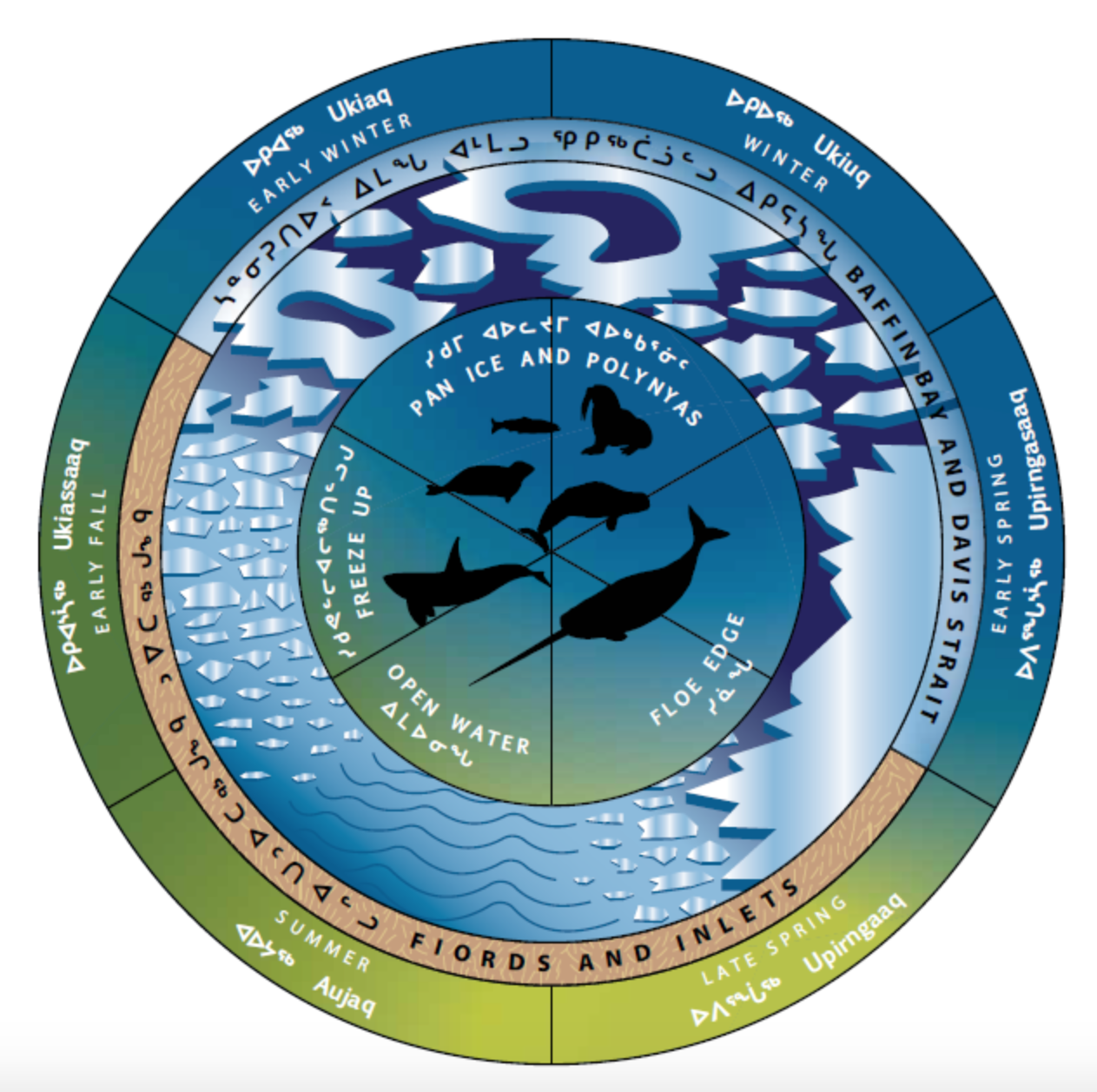Inuit Environmentalists
Inuit Qauijimajatuqangit (Khao-yee-muh-yah-tut-khanggeet) or IQ, also referred to as Inuit traditional knowledge, is a source of information based on historical and/or current observations by Inuit which has been passed on orally over several lifetimes.
A large portion of IQ is tied to harvesting and the environment, but it is also directly linked to local socio-economics and cultural practices of Inuit.
The incorporation of IQ is a fundamental premise of conducting scientific research in Nunavut. Under the Canada National Marine Conservation Areas Act, the Nunavut Wildlife Act and the Nunavut Land Claim Agreement, working in collaboration with Inuit knowledge holders and community members is not only good to do, it is the law. Permits to conduct research in Nunavut, with Inuit and community members, requires an application and permit through the Nunavut Research Institute.

IQ and contemporary science are information bases that complement each other. IQ can be used alongside scientific knowledge to get a more complete understanding of the use and value of an area.
Using IQ alongside scientific knowledge:
- helps identify community values and sense of connection to place
- provides relevant current and historical data that is not readily available to scientists (baseline data)
- allows for community members to be involved in decision-making through the use of IQ
- empowers community-based monitoring to identify parts of the ecosystem that are stressed or undergoing change.
"We are always trying to protect wildlife and environment. Trying to balance modern ways of living and our past. [It is] very important to protect Tallurutiup Tariunga because of this area being very important to large numbers of marine mammals, but also shorebirds and polar bears. We need to protect them for future generations.”

Copyright © All Rights Reserved

